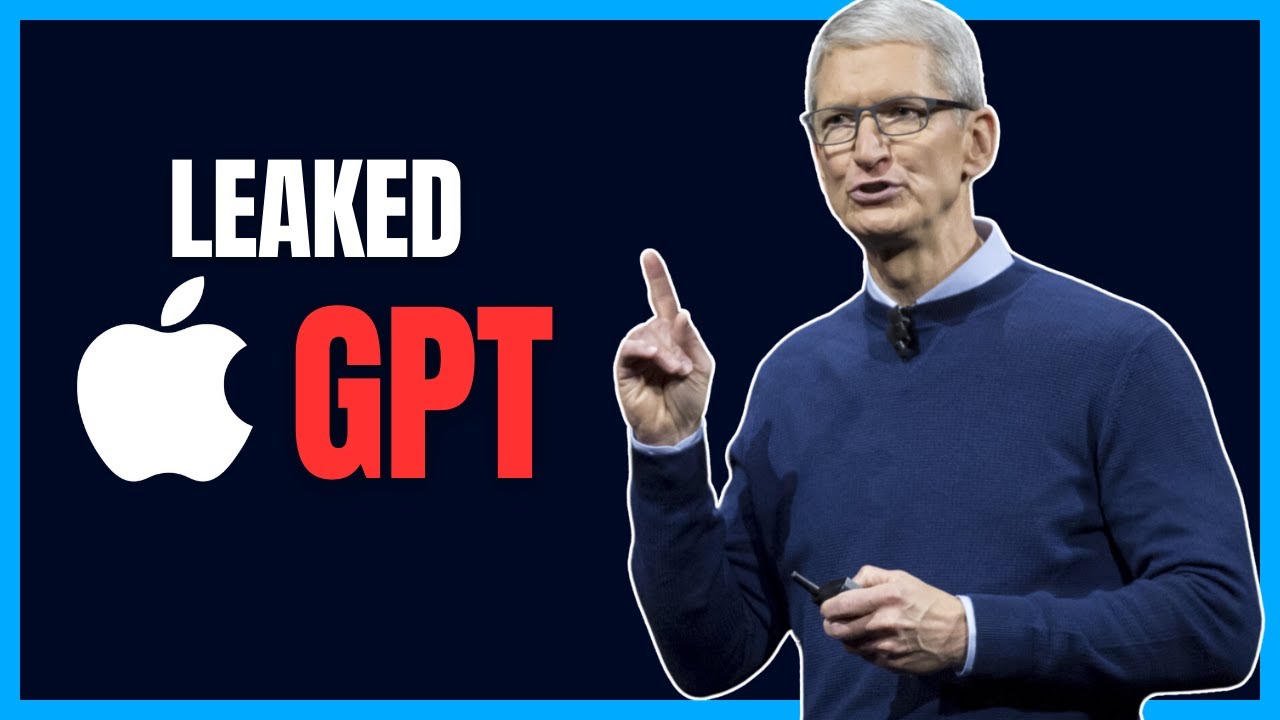Will Apple's AI Efforts Pay Off? A Look At The Competition

Table of Contents
Apple's Strengths in the AI Race
Apple possesses several significant advantages in the AI race, setting the stage for potential future dominance.
A Massive and Loyal User Base
Apple boasts a massive and fiercely loyal user base, a crucial asset for AI development. This vast network provides a rich source of data for training AI models and refining algorithms. The sheer volume of data generated by Apple users offers unparalleled opportunities for personalization and the development of targeted services.
- Improved Siri accuracy: The more data Siri processes, the better it can understand user requests and provide more accurate responses.
- Personalized health features: Data from Apple Watch and Health app users can power more personalized health insights and recommendations.
- Enhanced privacy features utilizing on-device AI: Processing data locally on devices allows for improved privacy while still benefiting from AI-powered features. This directly addresses user concerns about data security and privacy.
This vast dataset, coupled with Apple's commitment to privacy, positions the company strongly for future AI advancements in personalized experiences.
Focus on Privacy and Security
Apple's unwavering commitment to user privacy is a significant differentiator in the AI market. In a world increasingly concerned about data security and the ethical implications of AI, Apple's focus on privacy could attract users wary of competitors' less transparent data handling practices.
- Differential privacy techniques: Apple employs advanced techniques to protect user data while still enabling AI model training.
- On-device processing: Many AI tasks are performed directly on the user's device, minimizing data transmission to Apple's servers.
- Transparent data handling practices: Apple is committed to clearly outlining how it collects, uses, and protects user data.
This transparent and privacy-focused approach could become a crucial selling point, attracting users prioritizing data security and ethical AI development.
Integration with Hardware
Apple's vertical integration, controlling both hardware and software, is a major strength in AI development. The A-series chips, powering iPhones, iPads, and Macs, are specifically designed with machine learning capabilities in mind. This tight integration fosters optimized performance and potentially superior user experiences.
- Faster processing for AI tasks: The powerful A-series chips enable faster processing of AI-related tasks, leading to quicker response times and smoother user interactions.
- Enhanced efficiency: The optimized hardware and software integration results in more efficient use of energy, extending battery life and minimizing resource consumption.
- Potential for new hardware-specific AI features: The close relationship between hardware and software allows for the creation of innovative AI features that are deeply integrated into the user experience, rather than being bolted on as an afterthought.
This hardware-software synergy is a key differentiator, giving Apple a significant advantage in developing advanced AI features and capabilities.
Apple's AI Challenges and Competitors
Despite its strengths, Apple faces significant challenges in the AI arena.
Catching Up to the Leaders
Google, Microsoft, and other tech giants have a considerable head start in AI infrastructure and model development. Apple faces the challenge of catching up to these established players who possess extensive datasets and considerable expertise.
- Resource allocation: Effectively allocating resources to AI development is crucial for Apple to compete effectively.
- Talent acquisition: Attracting and retaining top AI talent is a key challenge in a highly competitive market.
- Public perception: Changing the perception that Apple is a latecomer in the AI space is essential for success.
- The need for rapid innovation: The fast-paced nature of AI development necessitates rapid innovation to remain competitive.
Overcoming these challenges is vital for Apple's success in the long term.
The Siri Factor
Siri, Apple's virtual assistant, has lagged behind competitors like Google Assistant and Alexa in several key areas. Significant improvements are crucial for Siri to become a truly competitive force.
- Accuracy: Siri's accuracy needs improvement to consistently understand and respond correctly to user requests.
- Natural language understanding: Enhanced natural language processing capabilities are essential for more natural and intuitive interactions.
- Feature set: Expanding Siri's feature set to match or exceed competitors is vital for attracting and retaining users.
- Integration with other Apple services: Seamless integration with other Apple services is critical for a cohesive and user-friendly experience.
Addressing these shortcomings is crucial for Siri's future viability and Apple's overall success in the AI market.
Openness and Ecosystem
Apple's relatively closed ecosystem, compared to the more open platforms of competitors, presents both advantages and disadvantages. This closed nature could potentially limit the potential for broader AI adoption and innovation.
- Third-party developer access: Greater openness to third-party developers could accelerate innovation and expand the capabilities of Apple's AI offerings.
- Data sharing limitations: Limited data sharing could hinder the development of truly large-scale AI models.
- Potential for slower innovation cycles: A less open ecosystem can potentially lead to slower innovation cycles compared to more open platforms.
Conclusion: Will Apple's AI Strategy Succeed?
Apple's AI strategy presents a compelling mix of strengths and weaknesses. Its focus on user privacy, tight hardware-software integration, and a massive user base offer considerable advantages. However, catching up to established AI leaders, improving Siri's capabilities, and potentially increasing the openness of its ecosystem represent significant challenges. Will Apple's commitment to privacy, coupled with its hardware prowess, ultimately lead to success in this intensely competitive arena? Only time will tell. But one thing is certain: the future of Apple AI will be fascinating to watch. What are your predictions for Apple's AI future? Share your thoughts on Apple's AI strategy and whether you believe its AI efforts will pay off in the long term. Let's discuss Apple AI's future potential in the comments below.

Featured Posts
-
 Dakota Johnsons Family Supports Her At Materialist Premiere
May 09, 2025
Dakota Johnsons Family Supports Her At Materialist Premiere
May 09, 2025 -
 Hills 27 Saves Power Vegas Golden Knights Past Columbus Blue Jackets
May 09, 2025
Hills 27 Saves Power Vegas Golden Knights Past Columbus Blue Jackets
May 09, 2025 -
 Snegopad V Permi Aeroport Vremenno Priostanovil Rabotu
May 09, 2025
Snegopad V Permi Aeroport Vremenno Priostanovil Rabotu
May 09, 2025 -
 Vegas Golden Knights Defeat Columbus Blue Jackets Hill Makes 27 Saves
May 09, 2025
Vegas Golden Knights Defeat Columbus Blue Jackets Hill Makes 27 Saves
May 09, 2025 -
 Aeroport Permi Zakryt Iz Za Snegopada Chto Nuzhno Znat Passazhiram
May 09, 2025
Aeroport Permi Zakryt Iz Za Snegopada Chto Nuzhno Znat Passazhiram
May 09, 2025
